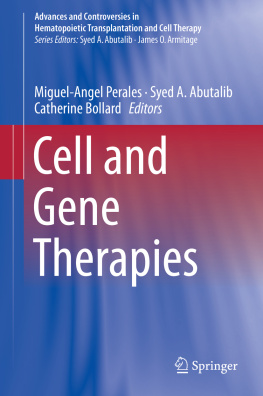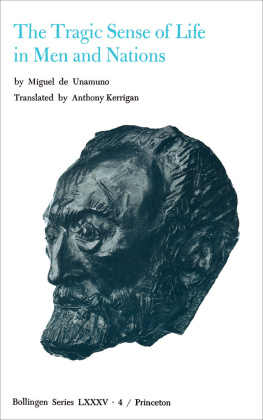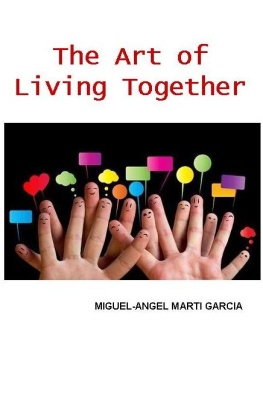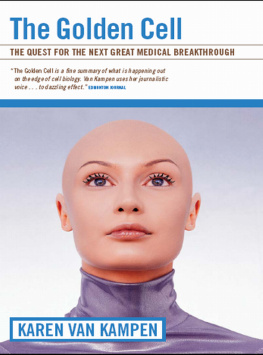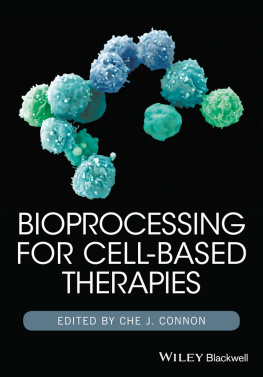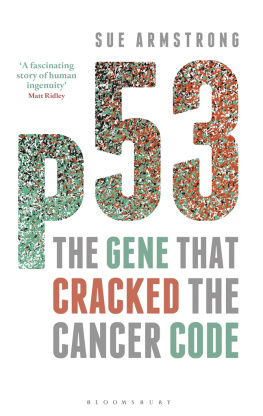Miguel-Angel Perales - Cell and Gene Therapies
Here you can read online Miguel-Angel Perales - Cell and Gene Therapies full text of the book (entire story) in english for free. Download pdf and epub, get meaning, cover and reviews about this ebook. year: 2019, publisher: Springer, genre: Science. Description of the work, (preface) as well as reviews are available. Best literature library LitArk.com created for fans of good reading and offers a wide selection of genres:
Romance novel
Science fiction
Adventure
Detective
Science
History
Home and family
Prose
Art
Politics
Computer
Non-fiction
Religion
Business
Children
Humor
Choose a favorite category and find really read worthwhile books. Enjoy immersion in the world of imagination, feel the emotions of the characters or learn something new for yourself, make an fascinating discovery.
- Book:Cell and Gene Therapies
- Author:
- Publisher:Springer
- Genre:
- Year:2019
- Rating:5 / 5
- Favourites:Add to favourites
- Your mark:
- 100
- 1
- 2
- 3
- 4
- 5
Cell and Gene Therapies: summary, description and annotation
We offer to read an annotation, description, summary or preface (depends on what the author of the book "Cell and Gene Therapies" wrote himself). If you haven't found the necessary information about the book — write in the comments, we will try to find it.
Cell and Gene Therapies — read online for free the complete book (whole text) full work
Below is the text of the book, divided by pages. System saving the place of the last page read, allows you to conveniently read the book "Cell and Gene Therapies" online for free, without having to search again every time where you left off. Put a bookmark, and you can go to the page where you finished reading at any time.
Font size:
Interval:
Bookmark:
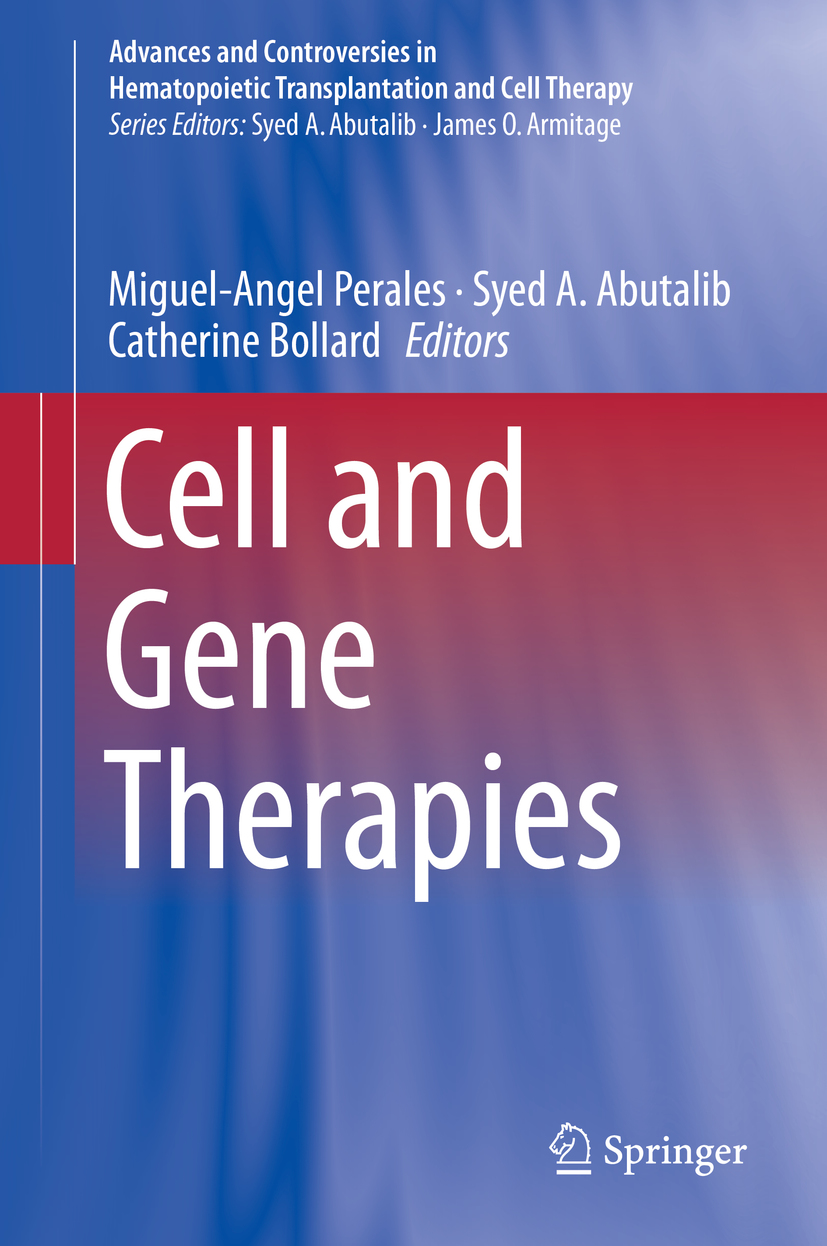
Each volume will focus on different aspects of blood and marrow transplantation or cellular therapy and presents up-to-date data and concepts as well as controversial aspects.
More information about this series at http://www.springer.com/series/13907

This Springer imprint is published by the registered company Springer Nature Switzerland AG
The registered company address is: Gewerbestrasse 11, 6330 Cham, Switzerland
In the beginning days of blood banking, surgeons would call imperiously for fresh whole blood recognizing its superior restorative properties over banked blood. Since then technological advances have made it possible to break down the therapeutic elements of fresh blood into their constituent platelets, red cells, plasma, and clotting factors, and through apheresis, blood bankers can even provide granulocytes, lymphocytes, progenitors, and stem cells. The component therapy concept is so widely accepted that we cease to think it as being unusual. Curiously, and in contrast, transplant physicians have been slower to apply a component therapy approach to their practice. Even today the majority of hematopoietic cell transplantation (HCT), whether from the bone marrow, peripheral blood, or cord blood, is as unmanipulated as the fresh whole blood beloved of our surgeons of the past. Nevertheless, the attractions of a component therapy approach to HCT are many including but not limited to (1) T-cell depletion by selection of CD34+ cells, which can reduce GvHD, and (2) infused donor lymphocytes which can improve engraftment and treat leukemic relapse. Careful studies in the 1990s determined the doses of CD34+ cells and lymphocytes in the graft that led to the best outcomes, and donor lymphocyte infusion doses were calibrated to achieve graft-versus-leukemia effects with minimal graft-versus-host disease.
These initial graft manipulations contributed to steady progress to improving HCT outcome, extending the upper age limit of HCT recipients and paving the way for successful transplants from HLA-haploidentical mismatch donors. However, we now see these advances as merely a prelude to the full realization of the component therapy approach through modern cell and gene therapies. Advances in technology in translational research have opened up exciting and powerful new cell-based treatments which promise to dramatically transform the way we perform allogeneic HCT and eliminate the obstacles of GvHD, relapse, and transplant-related mortality (TRM).
In this volume, we review the exciting developments in cell and gene therapy as it relates to HCT. From blood or marrow, a diverse repertoire of cell products are now manufactured including mesenchymal stromal cells (Chap. ).
With the rapid advances in treatments of neoplastic disease and the prospect of continuing breakthroughs in treatments, as we have seen with the introduction of tyrosine kinase inhibitors and recently checkpoint inhibitors, we should be wary about predicting where HCT will be by the next decade. However, the rapid advances in cell therapy show a growing ability to render HCT safer and more effective. The progress documented with cell and gene therapy ensures that HCT will continue to remain central to the treatment of neoplastic and nonmalignant disorders for the foreseeable future.
Font size:
Interval:
Bookmark:
Similar books «Cell and Gene Therapies»
Look at similar books to Cell and Gene Therapies. We have selected literature similar in name and meaning in the hope of providing readers with more options to find new, interesting, not yet read works.
Discussion, reviews of the book Cell and Gene Therapies and just readers' own opinions. Leave your comments, write what you think about the work, its meaning or the main characters. Specify what exactly you liked and what you didn't like, and why you think so.

